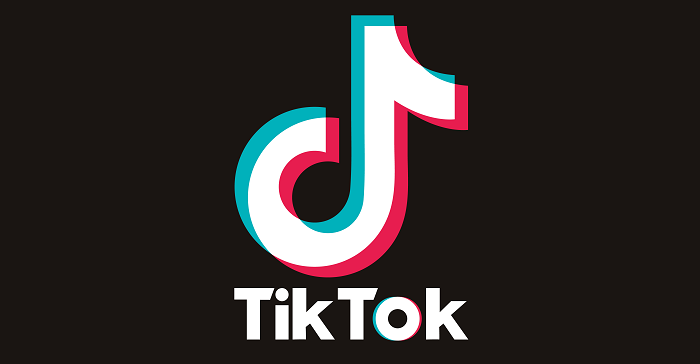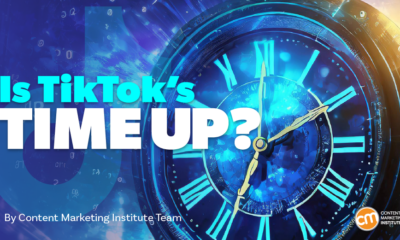SOCIAL
TikTok Looks to Reassure US Authorities that US User Data is Not Being Shared with the CCP

After an FCC Commissioner called on Apple and Google to ban TikTok from their app stores last week, due to concerns that the app could be used as a surveillance tool, of sorts, by the Chinese Government, TikTok has sought to reassure US users that their data is safe.
As explained by TikTok:
“The security of the data our community entrusts us with is a top priority at TikTok, despite recent reports questioning that commitment. We have sent a letter to Congress addressing these issues and others, and also want to share with our community the steps we take to secure our US user data, as well as where we’re headed in our commitment to keeping US user data safe, private, and secure.”
TikTok points to its recent system updates, which now see all of its US user data routed through Oracle Cloud Infrastructure, keeping more US user data within the US, while it’s also developing its US-based engineering capacity in order to reduce the need for data transfers across regions.
“As we recently shared with members of Congress, we are working toward a new system in which access to US user data by anyone outside of USDS will be limited by, and subject to, robust data access protocols with monitoring and oversight mechanisms by Oracle.”
Though right now, TikTok says that some Chinese staff from parent company ByteDance can access US user data, in limited capacity.
“Like many global companies, TikTok has engineering teams around the world – including in Mountain View, London, Dublin, Singapore, and China – and those teams might need access to data for engineering functions that are specifically tied to their roles. That access is subject to a series of robust controls, safeguards like encryption for certain data, and authorization approval protocols overseen by our US-based leadership/security team. To facilitate those approvals, we also have an internal data classification system; the level of approval required for access is based on the sensitivity of the data according to the classification system.”
So theoretically, US user data is accessible, in some form, by TikTok’s China-based staff, which could be a security vulnerability, under China’s strict cybersecurity laws. But TikTok’s working to assure US users, and authorities, that such access is very limited, and does not pose a risk, as such, based on how that information could be used.
Will that be enough to stave off another round of scrutiny on the app?
A lot of that will largely depend on the actions of the CCP, which is at odds with the US, and other governments, on several major fronts at present.
The Chinese Government has thus far refused to condemn the Russian invasion of Ukraine, the most significant world power to withhold its judgment on Russia’s military action, while China has also been encroaching on Taiwan’s borders in a show of force, which has seen the US offer strong support for Taiwan, in case of further action.
Such tensions raise the specter of even greater conflict, and as China continues to build its military forces, and establish new naval bases in the South Pacific, that underlying concern continues to reiterate questions about TikTok, and what its massive data trove could be used for in case of further escalation.
To be clear, there is no evidence that the CCP has called upon TikTok to share US user data in any capacity, and it may never do so, while TikTok’s advanced measures to separate region-specific data do go some way towards alleviating concerns.
But while China remains at odds with the rest of the world on several key fronts, there will always be questions as to how TikTok might end up caught in the middle, which, like India, could see it cut off from other regions as a result.
TikTok further notes that it’s created a new division called ‘US Data Security (USDS)’ – ‘to bring heightened focus and governance to our ongoing efforts to strengthen our data protection policies and protocols’. But again, none of this will matter if the Chinese Government continues its various stand-offs with other regions. And if tensions escalate, even a little, that could well be disastrous for TikTok’s growth plans.
Because if the US were to decide to ban TikTok, other regions would follow, while if Apple and/or Google decided to remove the app, all regions would be cut off anyway.
It seems unlikely, right now, that TikTok could be banned entirely, based on current conditions. But things can change quickly, and the latest concerns underline the continued scrutiny of the app.
SOCIAL
Snapchat Explores New Messaging Retention Feature: A Game-Changer or Risky Move?

In a recent announcement, Snapchat revealed a groundbreaking update that challenges its traditional design ethos. The platform is experimenting with an option that allows users to defy the 24-hour auto-delete rule, a feature synonymous with Snapchat’s ephemeral messaging model.
The proposed change aims to introduce a “Never delete” option in messaging retention settings, aligning Snapchat more closely with conventional messaging apps. While this move may blur Snapchat’s distinctive selling point, Snap appears convinced of its necessity.
According to Snap, the decision stems from user feedback and a commitment to innovation based on user needs. The company aims to provide greater flexibility and control over conversations, catering to the preferences of its community.
Currently undergoing trials in select markets, the new feature empowers users to adjust retention settings on a conversation-by-conversation basis. Flexibility remains paramount, with participants able to modify settings within chats and receive in-chat notifications to ensure transparency.
Snapchat underscores that the default auto-delete feature will persist, reinforcing its design philosophy centered on ephemerality. However, with the app gaining traction as a primary messaging platform, the option offers users a means to preserve longer chat histories.
The update marks a pivotal moment for Snapchat, renowned for its disappearing message premise, especially popular among younger demographics. Retaining this focus has been pivotal to Snapchat’s identity, but the shift suggests a broader strategy aimed at diversifying its user base.
This strategy may appeal particularly to older demographics, potentially extending Snapchat’s relevance as users age. By emulating features of conventional messaging platforms, Snapchat seeks to enhance its appeal and broaden its reach.
Yet, the introduction of message retention poses questions about Snapchat’s uniqueness. While addressing user demands, the risk of diluting Snapchat’s distinctiveness looms large.
As Snapchat ventures into uncharted territory, the outcome of this experiment remains uncertain. Will message retention propel Snapchat to new heights, or will it compromise the platform’s uniqueness?
Only time will tell.
SOCIAL
Catering to specific audience boosts your business, says accountant turned coach

While it is tempting to try to appeal to a broad audience, the founder of alcohol-free coaching service Just the Tonic, Sandra Parker, believes the best thing you can do for your business is focus on your niche. Here’s how she did just that.
When running a business, reaching out to as many clients as possible can be tempting. But it also risks making your marketing “too generic,” warns Sandra Parker, the founder of Just The Tonic Coaching.
“From the very start of my business, I knew exactly who I could help and who I couldn’t,” Parker told My Biggest Lessons.
Parker struggled with alcohol dependence as a young professional. Today, her business targets high-achieving individuals who face challenges similar to those she had early in her career.
“I understand their frustrations, I understand their fears, and I understand their coping mechanisms and the stories they’re telling themselves,” Parker said. “Because of that, I’m able to market very effectively, to speak in a language that they understand, and am able to reach them.”Â
“I believe that it’s really important that you know exactly who your customer or your client is, and you target them, and you resist the temptation to make your marketing too generic to try and reach everyone,” she explained.
“If you speak specifically to your target clients, you will reach them, and I believe that’s the way that you’re going to be more successful.
Watch the video for more of Sandra Parker’s biggest lessons.
SOCIAL
Instagram Tests Live-Stream Games to Enhance Engagement

Instagram’s testing out some new options to help spice up your live-streams in the app, with some live broadcasters now able to select a game that they can play with viewers in-stream.
As you can see in these example screens, posted by Ahmed Ghanem, some creators now have the option to play either “This or That”, a question and answer prompt that you can share with your viewers, or “Trivia”, to generate more engagement within your IG live-streams.
That could be a simple way to spark more conversation and interaction, which could then lead into further engagement opportunities from your live audience.
Meta’s been exploring more ways to make live-streaming a bigger consideration for IG creators, with a view to live-streams potentially catching on with more users.
That includes the gradual expansion of its “Stars” live-stream donation program, giving more creators in more regions a means to accept donations from live-stream viewers, while back in December, Instagram also added some new options to make it easier to go live using third-party tools via desktop PCs.
Live streaming has been a major shift in China, where shopping live-streams, in particular, have led to massive opportunities for streaming platforms. They haven’t caught on in the same way in Western regions, but as TikTok and YouTube look to push live-stream adoption, there is still a chance that they will become a much bigger element in future.
Which is why IG is also trying to stay in touch, and add more ways for its creators to engage via streams. Live-stream games is another element within this, which could make this a better community-building, and potentially sales-driving option.
We’ve asked Instagram for more information on this test, and we’ll update this post if/when we hear back.
-

 MARKETING7 days ago
MARKETING7 days agoRoundel Media Studio: What to Expect From Target’s New Self-Service Platform
-

 SEO6 days ago
SEO6 days agoGoogle Limits News Links In California Over Proposed ‘Link Tax’ Law
-
SEARCHENGINES6 days ago
Daily Search Forum Recap: April 12, 2024
-

 SEARCHENGINES5 days ago
SEARCHENGINES5 days agoGoogle Core Update Volatility, Helpful Content Update Gone, Dangerous Google Search Results & Google Ads Confusion
-

 SEO5 days ago
SEO5 days ago10 Paid Search & PPC Planning Best Practices
-

 SEO7 days ago
SEO7 days agoGoogle Unplugs “Notes on Search” Experiment
-

 MARKETING6 days ago
MARKETING6 days ago2 Ways to Take Back the Power in Your Business: Part 2
-

 MARKETING4 days ago
MARKETING4 days ago5 Psychological Tactics to Write Better Emails















You must be logged in to post a comment Login